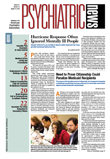Although a number of Freud's concepts are still embraced by contemporary psychiatrists (see story at left), others appear to have fallen out of favor or to have been revised.
Oedipus complex: Freud purportedly contended that the Oedipus complex—the sexual feelings that a child develops toward the parent of the opposite sex and the rivalry that it feels as a result toward the parent of the same sex—was his greatest discovery. Today psychiatrists tend to disagree with this assessment. Moreover, they are apt to question the universality of the concept.
For example, “Freud believed that boys always were afraid that their fathers were going to castrate them,” Regina Pally, M.D., a clinical professor of psychiatry at the University of California at Los Angeles, pointed out, “but we now realize that these things come more from a pathological environment. In the normal course of events, there doesn't have to be such heightened fears. [Also,] Freud believed that incest was a fantasy, and he kind of denied the reality that a lot of girls are molested by their fathers.”
Female psychology: Certainly, Freud's theories of female sexuality and his concept of penis envy “have been controversial and often criticized,” Lisa Mellman, M.D., a senior associate dean for student affairs at Columbia University College of Physicians and Surgeons, asserted.
“Freud had many good ideas, but some of them were wrong, and a good example is his view of female sexuality,” Glen Gabbard, M.D., chair of psychoanalysis and a professor of psychiatry at Baylor College of Medicine, declared. “We no longer view women as having less moral conscience than men.”
“His ideas about the psychology of women and women's sexuality, I think, are not considered to have any merit at this point,” Norman Clemens, M.D., a clinical professor of psychiatry at Case Western Reserve University, opined. “And there are two reasons why. One is that people have studied a lot more about it, and there is a lot more information available now from subsequent research. The other is that women have become prominent in the field, and there is much more of an attitude that women have their own psychology and it is related to their biology, just as men's is to theirs.”
Therapist as a blank screen: “I think Freud's way of describing psychotherapy as objective, neutral, and analogous to a biological experiment has been replaced by much more interpersonal and subjective views of what goes on between the therapist and the patient,” Steven Levy, M.D., vice chair of psychiatry at Emory University, commented. “The therapist is an active psychological participant, not an objective observer.”
Pally concurred: “We now realize that it is impossible, you can't be a blank screen, and it's not even good to be a blank screen.”
Sex and aggression: While Freud highlighted sex and aggression as the primary motivating forces in human life, most experts today believe that motivation is more complicated.
The death instinct: Psychiatrists today do not agree with Freud that there is an instinct that leads toward death, Harold Blum, M.D., a clinical professor of psychiatry at New York University and executive director of the Sigmund Freud Archives at the Library of Congress, testified. “In fact, most of the instincts we look at from a biological viewpoint... are really survival instincts, instincts toward reproducing and keeping the species alive.”
If Freud were alive today, how would he react to the discard or revision of the above concepts?
“Freud was a tremendously creative and innovative person, and he really changed the field of psychiatry,” Clemens stated. “But he is like any great scientist who comes up with a discovery. I think he would be very happy to see that the field has progressed the way that it has rather than just being stuck in things being the way he said they were. In other words, he started something that is evolving and very alive and dynamic. That is a great tribute to anyone who opens a field.”
